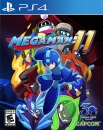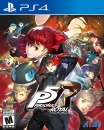freebs2 said:
In that sense, exclusives help certain hadrware manifacturers to grow their userbase. Exclusivity doesn't help the market as a whole to grow larger and healthier, actually it could be argued the opposite. Going by the assumption that every gamer has a limited budget, by forcing to buy multiple system to access all games you're actually deminishing the value of the game software market (number of gamers * thier budget), so it actually hurts developers of non-exclusive game titles. On the other hand, exclusivity is beneficial for game studios that make the exclusive title, since they get a co-marketing push from the platform manifacturer. Exclusivity can only be beneficial for customers if exclusive games are designed to take great advantage of platform specific features; that was the case of games designed for the Wii or DS, but imo it doesn't apply very much to the Switch or to PS4 vs Xbox One. It can make sense for next gen games that require processing capabilites above what was avaliable on older gen systems. Looking at games released in 2020, the only one that really can fit into that category was Half Life Alyx, probably. |
If a game is Switch exclusive and helps move Switch hardware and grow the userbase, then that benefits me and others like me as Switch owners because then we get more games to play on our platform of choice.
Last edited by curl-6 - on 23 January 2021




























































